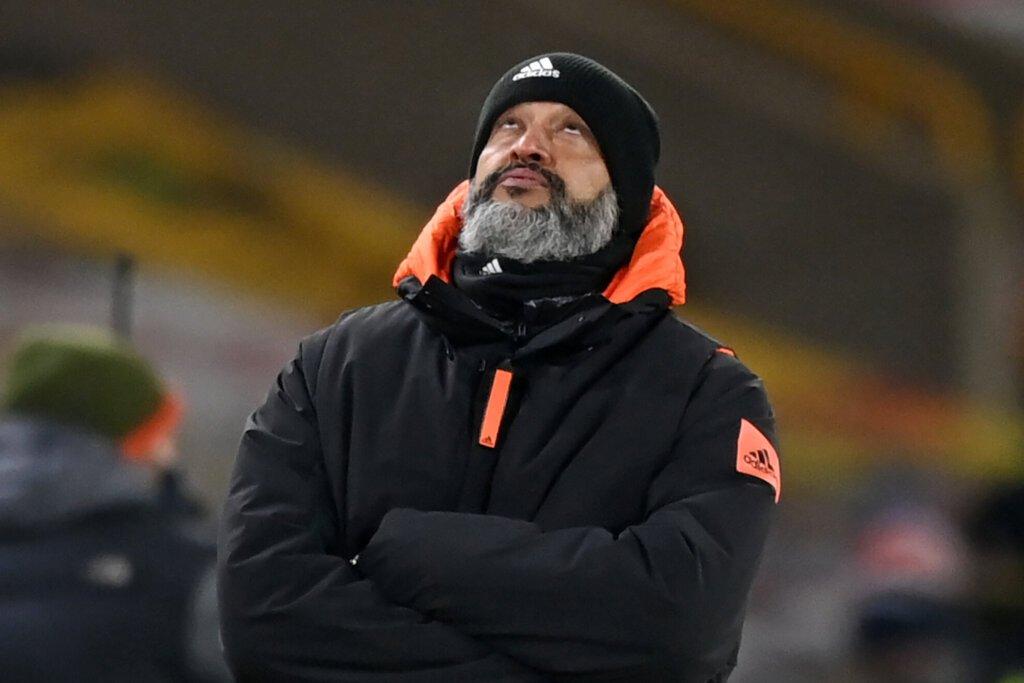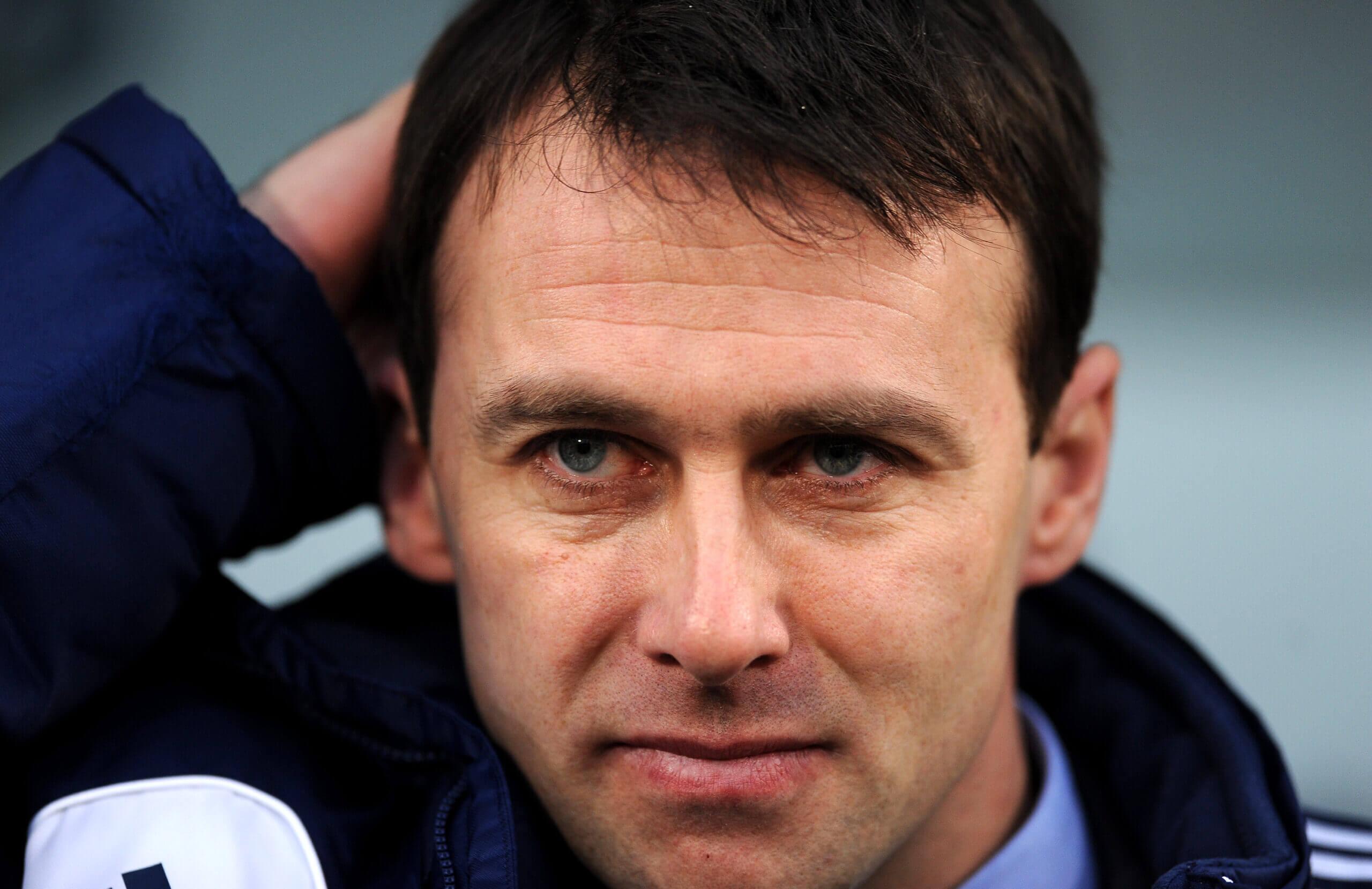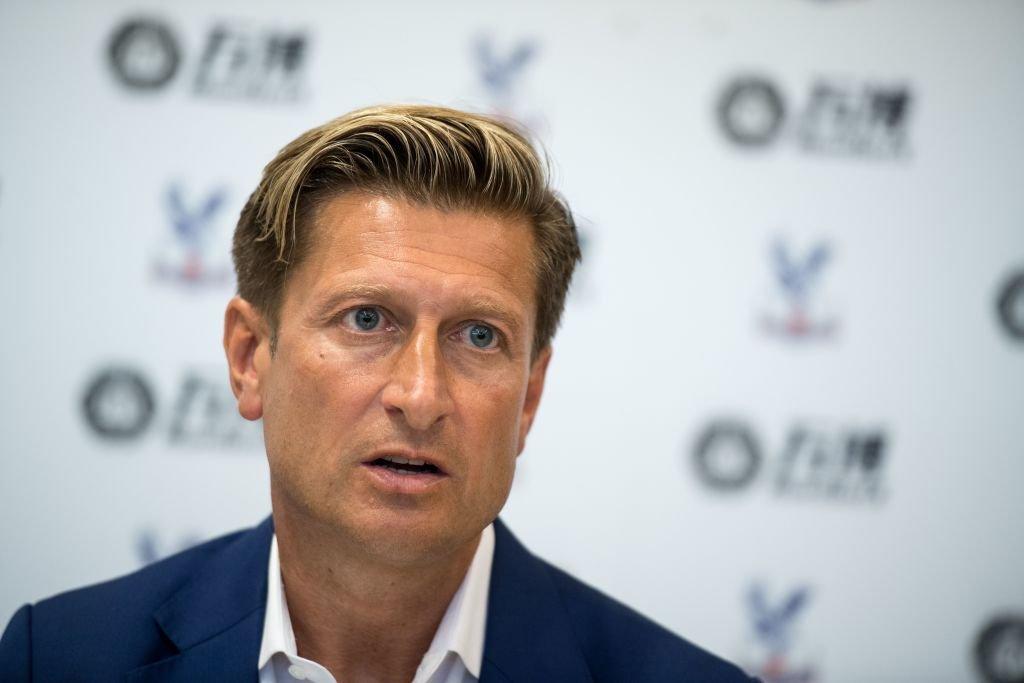How Nuno’s move to Crystal Palace descended into a circus

It is probably worth acknowledging from the outset that it was Nuno Espirito Santo, or rather, his agent Jorge Mendes, who instigated the initial approach to Crystal Palace rather than the other way around.
The Portuguese coach was leaving Wolverhampton Wanderers after four successful seasons and the south London club were preparing for life without Roy Hodgson. Mendes made the call towards the end of last month and the candidacy of a figure Palace had not considered a possibility as their next manager suddenly flared with promise.
Nuno appeared to tick all the boxes.
He had kept Wolves comfortably in the top division, attracting high-calibre players en route — albeit largely ones from the Mendes stable — and was a manager with considerable clout. Even a bit of mystique.
The 47-year-old seemed to offer the right blend of progressive ambition and solidity for a club whose first priority must always be to remain well clear of relegation trouble, but who are ever eager to kick on and establish themselves in the Premier League’s top half. From Palace’s point of view, the attraction was obvious.
They had been conducting a wide-ranging due diligence in attempting to identify Hodgson’s successor, speaking to those who were available, exploring how much it would cost to extricate others currently employed elsewhere, and sounding out people who had worked with or played under them all previously. And yet Nuno trumped the lot. The option had to be explored.
Indeed, this unforeseen opportunity quickly became the priority, prompting a succession of Zoom calls and even face-to-face talks in Lisbon. For a while, it felt promising. But that was way back at the end of May.
Everything in the period since had been problematic, the negotiations tortuous and convoluted, the goalposts constantly being shifted at Nuno’s end. The suspicion was the unexpected availability of the Everton job, following Carlo Ancelotti’s return to Real Madrid, had turned heads.
There was a period when the silence from Portugal was deafening as the Palace hierarchy, conscious there is a major squad rebuild to implement, twiddled their thumbs as they waited for a definitive answer.
By the end, when deadlines were being imposed from one end and fresh demands made from the other, the alarm bells were ringing loud.
This was not going to work.
At first glance, theirs had appeared an unlikely marriage.
The thought of Mendes, the superagent more used to placing Jose Mourinho at stellar clubs or shifting players around among the Champions League elite, working closely with Palace instinctively felt incongruous, though the truth is the Portuguese had dealt with the chairman, Steve Parish, in the past. They had hit it off.
The sporting director, Dougie Freedman, worked previously with figures at Gestifute — Mendes’ company — during his days as Nottingham Forest manager. Those relationships were pre-existing. The sense was they could do well together.
It was Nuno who was the unknown. The former Valencia and Porto manager had led Wolves to promotion from the Championship and then two eye-catching seventh-place top-flight finishes and a single-goal Europa League quarter-final loss to the eventual winners. Yes, the football became more turgid last term as the team laboured in the absence of their injured leading-scorer Raul Jimenez and following the sale of fellow forward Diogo Jota to Liverpool, but they were never in any serious threat of being dragged into trouble.
Palace had their dossiers on the likes of Burnley’s Sean Dyche and clubless former Chelsea boss Frank Lampard, Valerien Ismael and Steve Cooper of Championship play-off sides Barnsley and Swansea (and plenty of others), but there had always been the prospect of another candidate becoming unexpectedly available once the 2020-21 club season concluded.
Nuno offered intrigue, a hint of glitz and glamour, and some reassurance in terms of Premier League survival. In that regard, the club would sleep easily with him in charge, as they had for four years under Hodgson.
The potential new man appeared enthusiastic. At least at first. He liked the idea of a rebuild and a fresh project at a club embarking on a ninth successive season in the top division.
The video calls pre-empted Freedman travelling to Portugal — back when that country was still on the UK government’s COVID-19 green list — a few days before the Champions League final, to discuss the potential make-up of Nuno’s squad and what the recruitment department would need to implement over the summer to ensure the team was ready to hit the ground running when the games begin again in August. Those in-person talks were apparently positive.

Freedman met Nuno in Lisbon as talks advanced (Photo: Charlie Crowhurst/Getty Images)
Furthermore, there was a confidence at the club that, by appointing Nuno, they would resist ceding too much control to Mendes when it came to shaping their future transfer policy. They took advice from figures who had worked with the head coach, and in tandem with the superagent, at previous clubs, not least Wolves.
Palace impressed upon their prospective new head coach that the priority was still lowering the average age of the first-team group, with a promising crop of under-18s emerging through their academy. That would remain the case, and if a relationship with Mendes meant they could supplement their options with pedigree from his stable, then so be it.
It all felt encouraging. There was hope an agreement would be struck swiftly.
Yet even at the start of June, with Freedman back from Lisbon, potential stumbling blocks were emerging.
First was the overall cost of the package. Palace were comfortable with the wage demands put forward for Nuno himself, but he was insistent that he should be accompanied to south London by a significant entourage.
The suggestion was he would bring in two first-team coaches, a goalkeeping coach, at least one fitness coach and others whose roles across sports science and medicine seemed less well defined. All would command significant salaries. All would threaten the roles of the staff currently in place. And all would potentially leave en masse with Nuno if, for whatever reason, things did not work out.
And so began a drip-feed of unanticipated demands, caveats and “cake-and-eat-it clauses” put forward by Mendes, whether financial, contractual, logistical or over recruitment and staffing. The steady flow was now being delivered with the Everton job, which would mean working with a squad clearly better placed to compete for European qualification than Palace are, also up for grabs.
It is unclear just how enthusiastic the Merseyside club have ever been about recruiting Nuno, but talks of some kind are understood to have taken place and there was clearly a level of interest in the Portuguese’s camp over the prospect of working at Goodison Park. That complicated matters with Palace, not least because it further delayed the process.
Why would Nuno commit to Palace if he thought there was even a slim chance Everton might eventually make him an offer?
With that seed sown in the former Wolves head coach’s head, Palace suddenly found themselves in limbo for over a week with their control over the process undermined, fretting that they were merely being used as a means of leveraging a deal from Everton.
All the while, the clock was ticking down on the contracts of 11 first-team players at Selhurst Park — the group had been told collectively that no final decision would be made on renewals until a new manager was in place — and with the formal re-opening of the transfer window edging ever closer.
Nuno became elusive. It was increasingly impossible to secure a firm answer, or commitment, with the landscape forever shifting. Patience began to wear thin.
Even so, just yesterday, there was one final spasm of confidence that a deal could still be struck. Perhaps Nuno’s camp had resigned themselves to the reality that an offer was unlikely to be forthcoming from Everton, but there was a period on Tuesday evening when the noises were more positive again.
Palace, having made clear their previous frustrations, imposed a deadline — they had grown tired of waiting and needed a firm commitment — but believed it would be met. Word crept out that, as far as they were concerned, agreement had been reached in principle and the search for Hodgson’s successor was effectively over.
Except that proved premature.
Even through last night, the demands kept coming and, eventually, enough was enough. The club pulled the plug in the small hours of this morning.
The constant procrastination at Nuno’s end had raised their hackles, hardly representing the positive start to what was supposed to be a productive relationship, and the demands imposed by a manager whose team had finished one point and one place above Hodgson’s Palace in the table last season felt increasingly out of touch.
The whole process had descended into something of a circus.
There was a question, too, of whether this would have worked.
Nuno has preferred a back three, or five — a wing-back system with which to implement the counter-attacking style that worked so well at Wolves.
Admittedly, he did switch to a four-man defence, but in doing so that structured system which had proved effective at shutting out the opposition, fell away. In mitigation, a squad built on a wing-back system was always likely to concede more frequently when squeezed into a back-four template.
In time, Nuno was likely to revert back to test out his preferred style, even if not immediately. Implementing that would have proved difficult, at least to start with. The departure of Patrick van Aanholt this summer would have been a mistake in that case, the Holland international a proven talent going forward and perfectly suited to a wing-back system.
On the right, the cruel twist of fate for Nathan Ferguson in suffering an achilles injury likely to delay his debut until closer to the end of the calendar year would have been problematic too. Palace have Joel Ward and Nathaniel Clyne — who will both be out of contract in three weeks’ time — as their current options.
Schisms had also arisen with the Wolves hierarchy over recruitment, which contributed to Nuno’s departure, and with that concern, there is the possibility that those problems might have flared up at Palace as well.

Parish and the Palace hierarchy grew tired of the changing demands from Nuno (Photo: Chris J Ratcliffe/AFP via Getty Images)
Whilst there are significant funds set aside for the rebuild and transition, diverting that into acquiring two wing-backs would have surely seen a chunk of the budget eaten up, with other areas more of a priority.
At centre-back, Palace have players on the high side of 30 who are suited to sitting deep and soaking up pressure, whose relative lack of pace has not been a particular issue. But in adjusting to a more progressive form of counter-attacking, that experience would have required supplementing with fresh talent, and regardless of the new manager, is to play a crucial part in this summer’s squad regeneration with at least one, probably two centre-backs arriving. Marc Guehi, the 20-year-old who spent last season on loan at Swansea from Chelsea, is a target.
To that end, there would have been more promising news when it came to prioritising youth. Palace’s £20 million academy redevelopment has formed a crucial part of their thinking in this managerial search. Even with the opportunistic nature of the approach for Nuno, it was a consideration.
Last season, Wolves gave the highest proportion of minutes to players under 21 of any other Premier League side, at 19.1 per cent. While those in Palace’s youth set-up are not seen as ready to step up just yet, as and when they were considered to be capable of contributing then Nuno was more likely to take that opportunity to throw them in.
As much as Hodgson did not deliberately eschew young talent, blending them into a Nuno system less predicated on the importance of a rigid and repetitive structure would have proven easier.
The transition this summer will focus on external talent from elsewhere too, not just the academy.
The new manager will need to show a willingness to provide those opportunities where necessary as Palace seek out a more sustainable operating model.
So, what happens now?
Palace, on the face of it, are back to square one except that, awkwardly, those on their original list of candidates now know that, for a while at least, they were not considered first choice. For those potential appointees currently out of work, pragmatism could yet dictate they bury their pride if approached.
Others may be harder than ever to convince to come. The prospect of Dyche, a figure whom the club had considered at least twice for the role over the last four years and was one of the options again this time, upping sticks from Burnley suddenly feels more remote than ever — particularly with an offer of a lucrative new contract on the table at Turf Moor.
More realistic may be the head coach option, working within the sporting director structure where the convoluted process of renewing and recruiting can resume in earnest. Ismael and Cooper, whose respective attempts to secure promotion from the Championship ended in play-offs frustration last month, have always had support in the boardroom.
As young, up-and-coming coaches with no Premier League experience or pedigree behind them, they may be more willing to overlook the fact Nuno — for a little under three weeks, at least — was the priority. This would still be an opportunity too good for them to turn down.
Regardless, the Palace hierarchy are most likely left to return to those who have been previously considered, sifting through their curriculum vitae and performances at interview, assessing their pros and cons before determining who will be the figure to lead this team into an unprecedented ninth successive top-flight campaign.
The Nuno option was clearly worth exploring, particularly given the encouragement offered up by the Portuguese in those initial meetings. It had not been anticipated, but was intriguing. Yet it has only served to delay.
Palace need to wrest back some proper control in the process.
